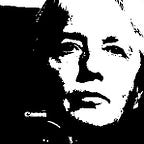Getting Help from Public Programs Should be Easier
But it’s not!
Diana Bowman, co-author for The Three Melissas Practical Guide to Surviving Family Homelessness, shared her thoughts in this post (also published in Substack, our Three Melissas page).
Matthew Desmond in Poverty, by America, points out that many people who are eligible for public assistance programs do not take advantage of these supports. He says,
“Roughly 7 million people who could receive [the Earned Income Tax Credit] don’t claim it, collectively passing up $17.3 billion annually. Combine that with the amount of money unclaimed each year by people who deny themselves food stamps ($13.4 billion), government health insurance ($62.2 billion), unemployment insurance when between jobs ($9.9 billion), and Supplemental Security Income ($38.9 billion), and you’re already up to nearly $142 billion in unused aid.”
Accessing public services in the U.S. is confusing, complicated, and time consuming. People who are poor and in need often give up on trying to find available services, and when they do, they lack the fortitude and skills to navigate complex systems. And even when they persist, they may be placed on interminably long waiting lists, such as in the case of federal housing vouchers, or denied services, as in the case of those applying for Supplemental Security Income.
Or, as The Three Melissas will tell you, people applying for services are often patronized and demeaned by providers who don’t understand the challenges that those who are poor or homeless face every day.
Desmond says,
“It should be just as easy for a new mother to apply for the Special Supplemental Nutrition Program for Woman, Infants, and Children (WIC) or a laid-off father to apply for unemployment, as it is for me to have birdseed or mouthwash delivered to my home from an app on my phone.”
Can you imagine if public service agencies took lessons from businesses on how to market their services and satisfy their customers? If assistance was direct and efficient? If programs simplified forms, streamlined processes, and reached out to connect people with support? How much farther would the benefits reach to really move the needle on alleviating poverty in the U.S.?
The Three Melissas have plenty to say, and the book with their wisdom is in the editing process. Stay tuned, and follow us on Substack (even the free version is great for us!).
